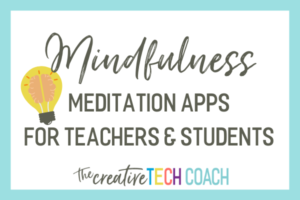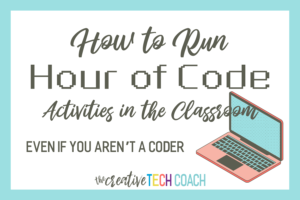As I was conducting research for the literature review, I went into it with a desire to find information on how to incorporate Web 2.0 resources into instruction to enhance and increase learning for English language learners. However, one theory that stood out to me—probably because I wasn’t looking for it—was identity construction. Burke (2013) and Hynes (2014) both consider English language learners’ construction of online identities in association with multiliteracies, or the ability for learners to express themselves in different ways through Web 2.0 resources.
It should not have been surprising to me that identity construction is important when examining the learning of ELL students. In a previous course, I learned that a “basic premise” in multicultural education is that a learner’s identity is constructed in a social and cultural context, specifically as they relate with other members of a community that are different from them (Solomon, Allen & Resta, 2002, 194). Solomon, Allen, and Resta (2002) point out some of the different types of identities that learners may already have, like child, sibling, or friend, but also share that learners construct multiple identities based on different contexts, like schools and classrooms.
Now that I have been reminded of identity construction, it is certainly something I will consider as I work with my group to complete our literature review and research prospectus on the use of social media to enhance the learning of English language learners. I am very eager to learn more about the identity construction of English language learners in an online environment, because students are able, to an extent, to create identities online beyond the context of their culture, homes, or classrooms. This will be interesting to examine in the context of social media, where users can not only assume a certain amount of anonymity (Langer de Ramirez, 2010), but can also create a certain identity based on what personal details they decide to share (Hogan, 2010). It will be also interesting for me to consider whether it is something that will be applicable in my own classroom where I teach an inclusion class for English language learners.
References
Burke, A. (2013). Creating identity: The online worlds of two English language learners.
Language and Literacy, 15(3), 31-n/a. Retrieved from http://search.proquest.com/docview/1430863801?accountid=12085
Hogan, B. (2010). The presentation of self in the age of social media: Distinguishing performances and exhibitions online. Bulletin of Science, Technology, & Society, 30(6), 377-386. doi: 10.1177/0270467610385893
Hynes, K. (2014). Multilingual composing on Facebook: Defining the “social” in social
constructivism and social media. Journal of Interdisciplinary Studies in Education, 3(1), 27-38. Retrieved from http://search.proquest.com/docview/1636419674?accountid=12085
Langer de Ramirez, L. (2010). Empower English language learners with tools from the Web. Thousand Oaks, CA: Corwin.
Solomon, G., Allen, N., & Resta, P. (2002). Toward digital equity: Bridging the divide in education. United States: Allyn & Bacon, Inc.




4 Responses
Hey Ashley,
This is a great topic! I am really enjoying the mash-up of concepts here. What is you initial thinking on the results of your literature review?
Thanks, Dr. C. I'm enjoying the research. Besides identity construction, some other themes I notice are social language proficiency vs. academic language proficiency. In my English language inclusion classroom last year, I placed a lot of emphasis on academic language. However, my research is encouraging me to consider the social language development of my students just as much. Also, not only has the research enlightened me on the many different ways to use social media with English language learners in general, it encourages me to adapt some of the activities to use with my 2nd graders (which I wouldn't have thought possible before)! I look forward to noticing more themes as I read my group members' webibliographies and begin our review!
Hey Ashley,
Great choice of learning theories this week! I especially like how you related it directly back to your ESL class and not just distance education. It is very important for each of us to remember that cultural and social identity can affect so many of our students. I think a lot of people become jaded to a certain extent and forget that everyone does not have the same experiences or backgrounds as we do. Instead, we become judgemental and try to fit everyone into the same box.
The other idea that you mentioned about learners creating their own online identity is quite interesting as well. I hope to get some time to look in to this research a little further to see the trend happening regarding a true personal identity and an online identity. Might be fun to look into!
I also want to pass on a tidbit from Dr. C.. She asked me if we had ever talked about connectivism. You should also look into this for online learning. Siemens (n.d.) discusses one of the key components of connectivism is "learning and knowledge rests in diversity of opinions". To me, this relates right back to the identity construction in that we all possess potential to teach others new ideas through our own experiences and failures. While we try to conform to those around us, we should really try to stand apart from them in order to allow our personal identity construction the benefit of helping others. That's probably another chat for another time, though! Thanks for getting me pursue this and think about it some more. Have a great week!
Amanda
Reference:
Siemens, G. (n.d.). Connectivism: A learning theory for the digital age. Retrieved on July 19, 2015 from http://www.itdl.org/journal/jan_05/article01.htm
Thanks for your comments, Amanda. I agree that sometimes we try to fit learners all into one nice, neat little container, but they are all different in so many ways! Yes, online identities are very interesting. It may be something my group explores more in our literature review. And yes, Dr. C. also informed my about connectivism last term. I appreciate how you connected it to identity construction, because I did not make that association myself. Thanks for the insights, Amanda!